Work side by side
Work side by side
Work side by side

Select subtitles in your language
Photo: © Pixabay – jhenning
Here I am!
Here I am!
Take courage in each moment!
Take courage in each moment!
Bring peace
Bring peace
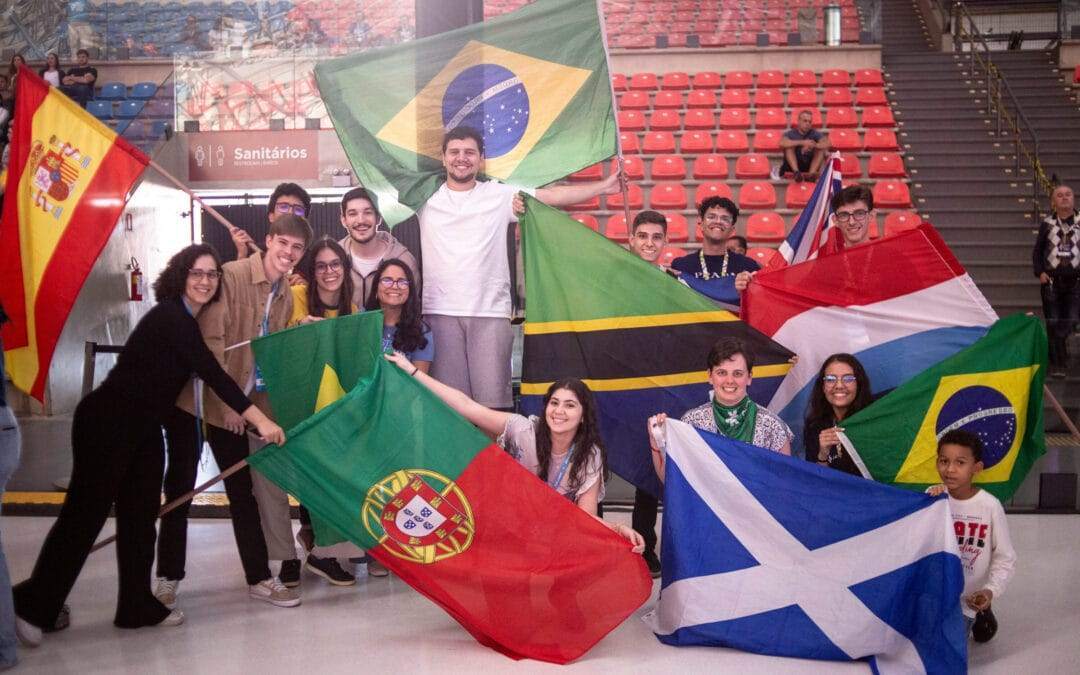
…We must be convinced that for the civilization of love to become a reality, we have to storm the world with a current of love. Otherwise, everything will remain like a dream, destined to die.
… Love! Teaching to love! The person who truly knows how to love, is the person who knows that he or she is sincerely loved. This is a human observation, but it is no less valid in the supernatural field. To know that we are loved! By whom? By the One who is Love. We must open the eyes of as many brothers and sisters as possible so that they might see and discover the treasure they possess, often without realizing it. They are not alone on this earth. There is Love. They have a Father who does not abandon his sons and daughters to their own destiny. He wants to accompany them, watch over them, help them. He is a Father who does not load burdens that are too heavy onto others’ shoulders. He is the first to carry them. In our case, he does not leave the renewal of society only to human initiative. But He is the first to be concerned with it. People should know this and turn to him, aware of the fact that nothing is impossible for him. We must believe, therefore, that we are loved by God so that we can throw ourselves with greater faith into the adventure of love, and work together with him for a New Humanity.
Then we must focus our interests on the human person and share with them misfortunes and successes, spiritual goods and material goods. And, to love well, we must not see the difficulties, corruption and sufferings of the world merely as social evils to be resolved. Rather, we must recognize in these the countenance of Christ, who did not disdain to hide himself beneath all human poverty.
Because of him – especially for those of us who are Christian – our greatest energies are channeled for the good of others. But since the love we are talking about is certainly not only philanthropy, or friendship or purely human solidarity, but is primarily a gift from Above, we must place ourselves in the best possible attitude to receive it, by nourishing ourselves on and living on the Word of God. …
Every person in their large or small world of daily activities – in the family, office, factory, trade union, immersed as they may be in local and general problems, in public institutions, all the way to the United Nations – can truly be a builder of peace, a witness to love, an instrument of unity.
Chiara Lubich
Photo: © Genfest 2024 – CSC Audiovisivi
Learn from everyone
Learn from everyone
Take risks for others
Take risks for others
Let’s entrust ourselves to God
Let’s entrust ourselves to God

Nearly 9,000 kilometres away from their home in Loppiano, Italy, the international band, “Gen Rosso”, visited Mongolia for the first time. Mongolia, an Asian nation nestled between Russia and China, is home to a small but vibrant Catholic Church led by the Apostolic Prefect, Cardinal Giorgio Marengo. With approximately 1,500 baptized Catholics among a population of 3.5 million, this visit marked a significant step in the community’s preparation for the Catholic Church’s Jubilee in 2025. Cardinal Marengo said, “A young Church, made up of young people, needs a youthful language to connect with people. I grew up with Gen Rosso’s songs. When someone suggested inviting you to Mongolia, I thought it was an excellent opportunity for missionary outreach in Gen Rosso’s style. Your art and lyrics have broad horizons, making it an ideal approach for a place like Mongolia, where the Church is in its early stages. This seemed like a golden opportunity.”
From 23rd November-2nd December, Gen Rosso engaged with hundreds of people, mostly young people, through various workshops in artistic disciplines like hip-hop dance, Broadway-style performance, party dance and choral singing. The workshops culminated in a concert held on 1st December in Ulaanbaatar, the capital.
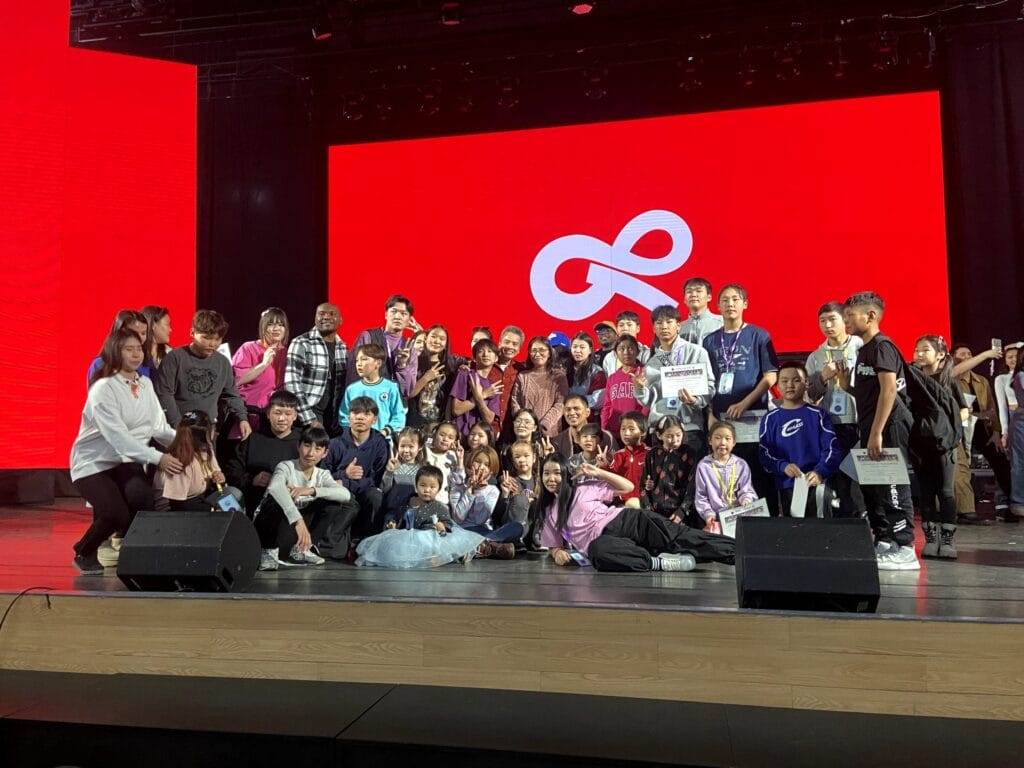
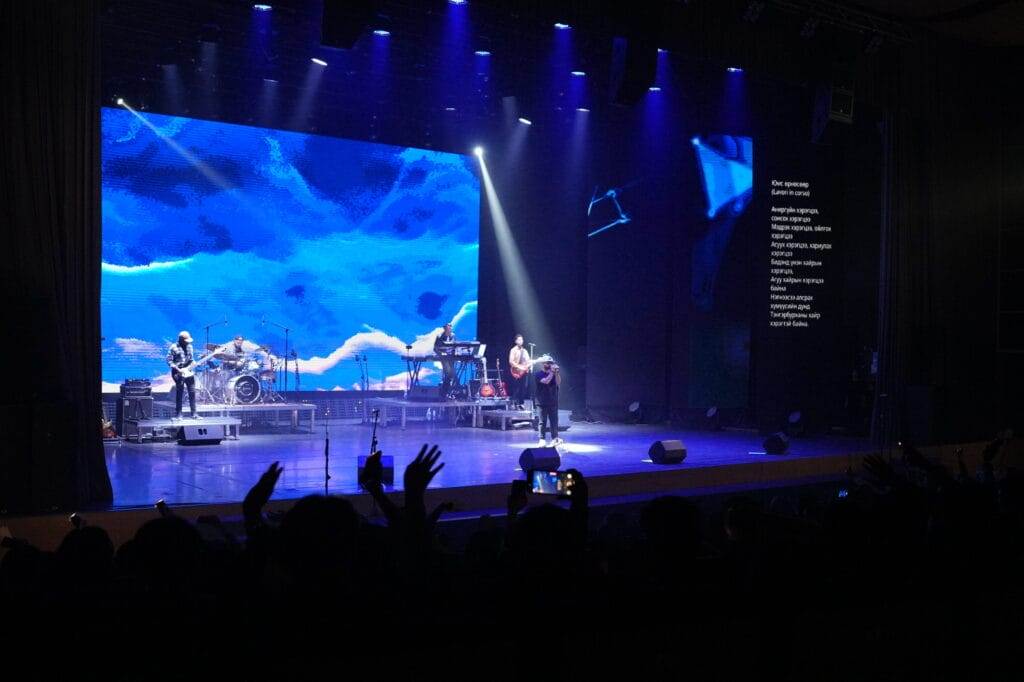
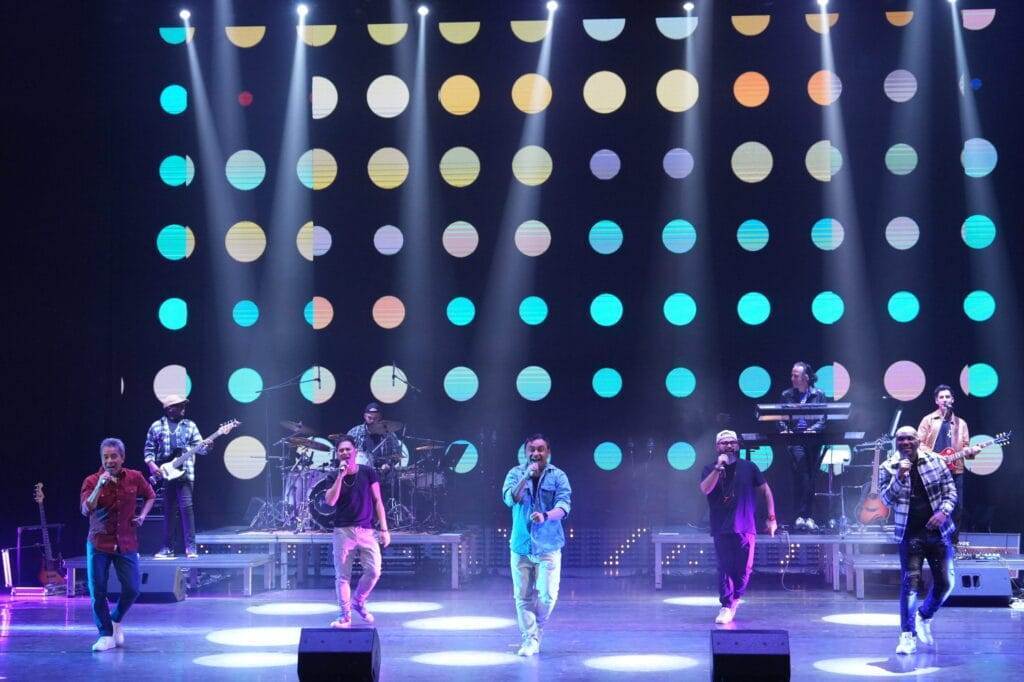
The band recounted, “We envisioned a ‘participatory’ concert to which the young people we met during our stay in Mongolia could also contribute. Our goal? To encourage cultural exchange among young people and prepare them to help animate the 1st December concert. We sang mainly in English, with some songs in Italian and included at least one verse of the song, ‘Hopes of Peace’ in Mongolian. Our aim was to foster a culture of peace and fraternity rooted in sharing and unity.”
Other highlights included visits to an orphanage, encounters with homeless people and meetings with nomadic families. “It was deeply moving to spend time with them, to sing together with the children, to give hope to these people and learn about their cultures and traditions,” said Emanuele Chirco and Adelson Oliveira of Gen Rosso. The Band also met with local young artists to promote a culture of peace and fraternity through music and art. Gen Rosso, founded in 1966 in Loppiano from an inspiration of Chiara Lubich, the founder of the Focolare Movement, continues to spread these values through their music. Before leaving, they were warmly received by Italy’s Ambassador to Mongolia, Dr. Giovanna Piccarreta.
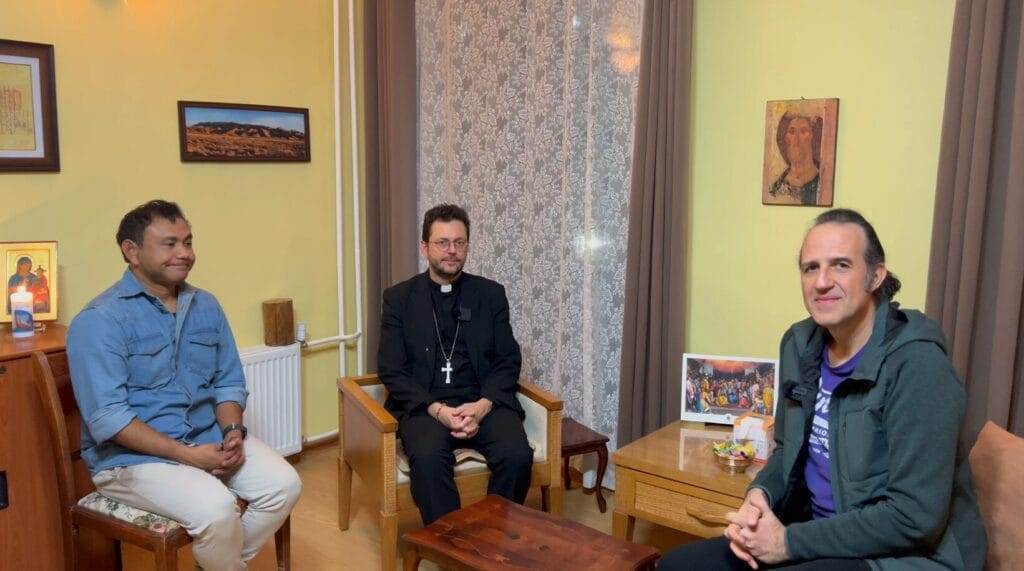
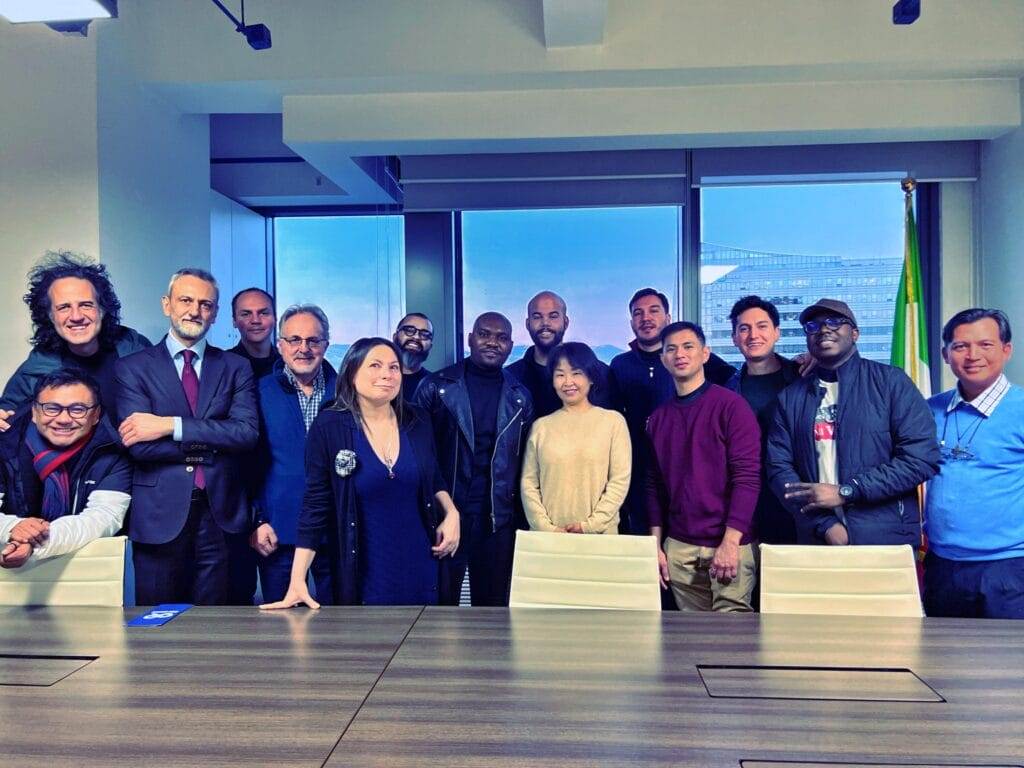
This journey marked a significant milestone for Mongolia’s Catholic community. When Pope John Paul II established the Prefecture in 2002, the Church in Mongolia had just over a hundred faithful and a small number of religious and priests. Cardinal Giorgio Marengo, a Consolata Missionary, arrived in 2003 and has witnessed the steady growth of the community. In 2023, Pope Francis made a historic visit to Mongolia, bringing a message of hope.
At the end of the tour Cardinal Marengo said, “It has been a wonderful experience of friendship with Gen Rosso; we felt united by the common denominator of Jesus. We immediately felt a connection. I was also struck by the brotherly care with which the Band members related to one another. I was certain that when they went on stage, they would deliver an experience of beauty and depth that would inspire reflection.”
Lorenzo Russo
For more information and upcoming events featuring Gen Rosso, visit: www.genrosso.com
Share
Share
Be attentive to others
Be attentive to others
Be near
Be near
Our strength is in God
Our strength is in God
Console
Console
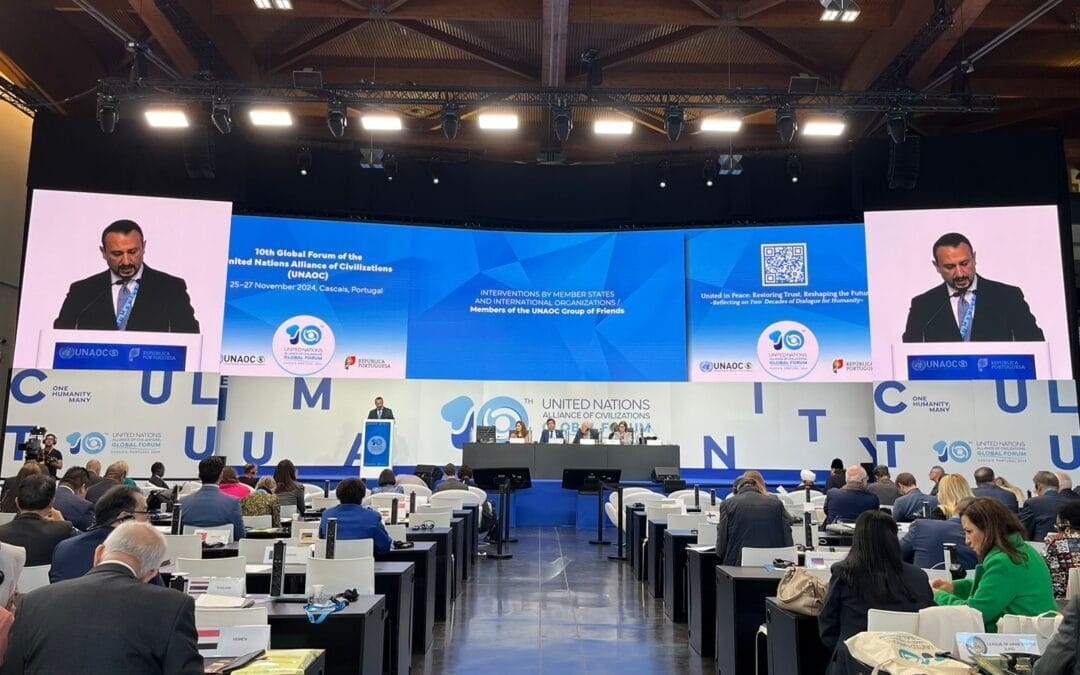
In a world marked by war, crises, and polarization, dialogue and cooperation remain the only paths to peace. With this conviction, New Humanity NGO joined the United Nations Alliance of Civilizations (UNAOC) Global Forum that convened its Group of Friends at Cascais, Portugal, from November 25th to 27th. Under the theme “United in Peace: Restoring Trust, Reshaping the Future — Reflecting on Two Decades of Dialogue for Humanity,” the event brought together diverse stakeholders—including religious leaders, academics, youth, media, and civil society representatives. High-profile attendees included António Guterres, UN Secretary-General, Marcelo Rebelo de Sousa, President of Portugal, the king Felipe from Spain, several current foreign ministers and previous prime ministers of European countries.
New Humanity NGO of the Focolare Movement and member of UNAOC’s Multifaith Advisory Council highlighted the organization’s commitment to fostering a just and united society, where faiths are spaces of encounter and collaboration. Rooted in decades of grassroots initiatives, New Humanity bridges local action with international diplomacy to tackle global challenges and promote peace. This participation underscored the importance of multilateral efforts to restore trust and reshape a future of harmony and collaboration among international institutions, religious organizations and the private sector.
Our commitment
During the Global Forum, Ana Clara Giovani and André Correia, youth representatives of the Focolare Movement, along with Maddalena Maltese, the main representative of the New Humanity NGO in New York, presented the document “Together to Care – For Our Human Family and Our Common Home.” This document represents a commitment by the Youth for a United World (Y4UW) to the Pact for the Future, approved by the United Nations last September.
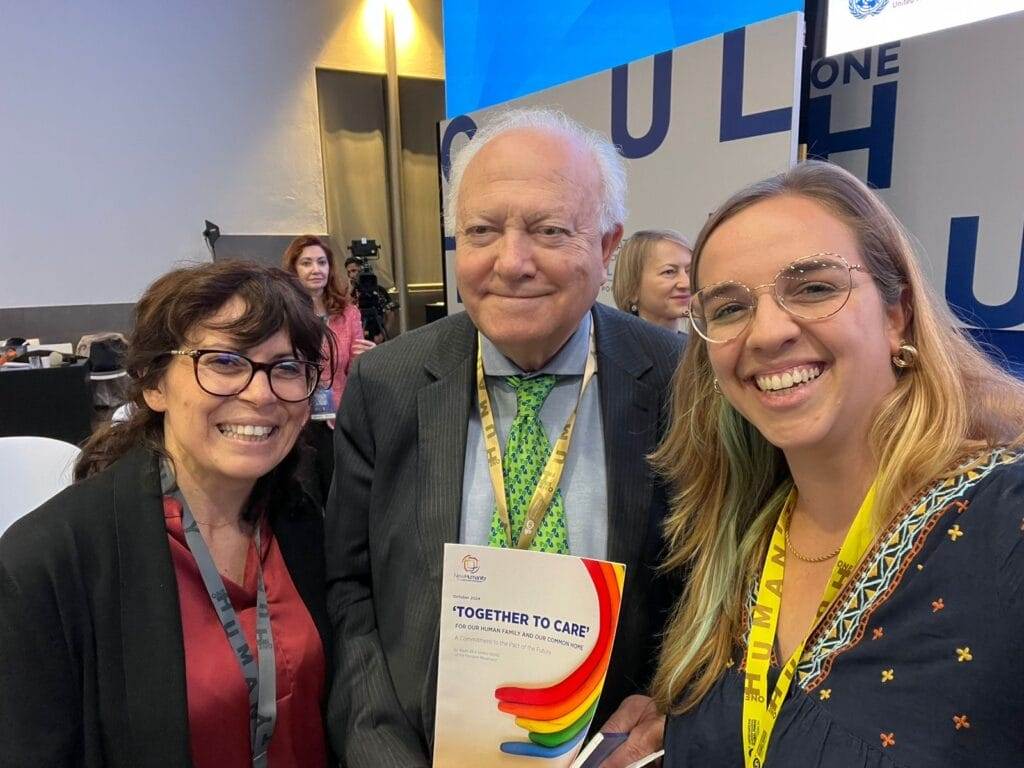
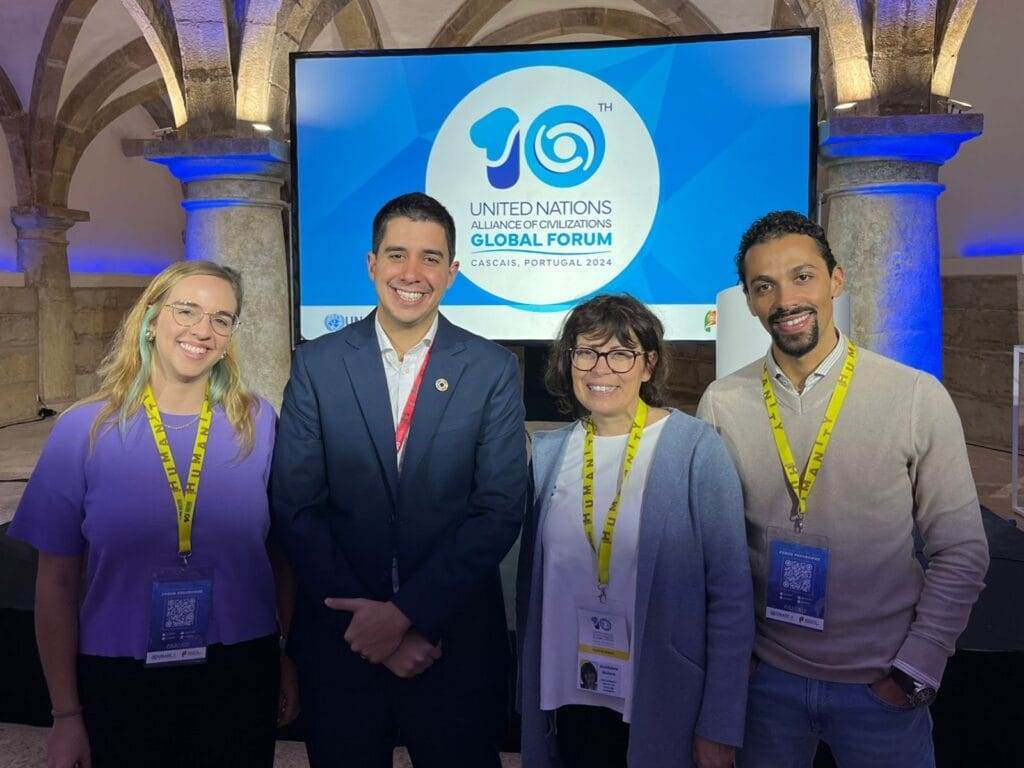
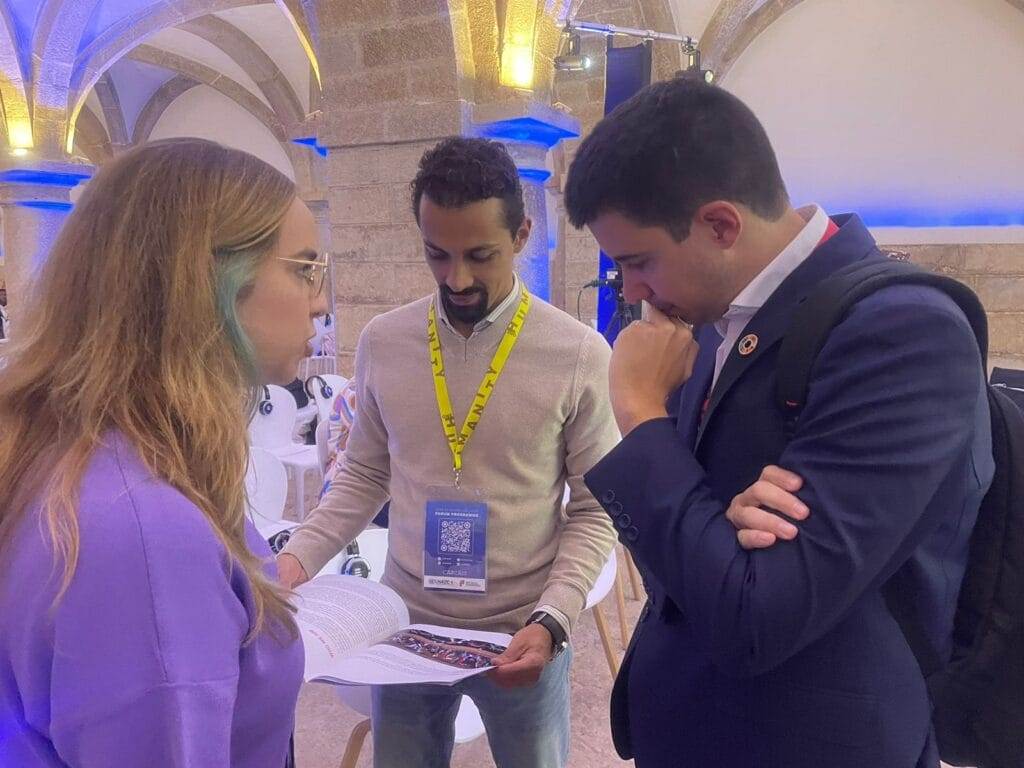
At Genfest 2024, a gathering of 4,000 youth from around the globe held in Brazil, eight hubs of innovation were launched to foster the unity of the human family and care for our common home. These eight United World Communities have consolidated and developed proposals and projects inspired by the spirituality of unity of the Focolare Movement, in alignment with the principles of the United Nations Declaration on Human Rights and the UN’s Pact for the Future. These initiatives focus on areas such as sustainable development, climate action, the promotion of peace and human rights, intercultural dialogue, social cohesion, and youth empowerment.
These projects and proposals form the core of the document presented in Cascais. It opens with a letter to UN Secretary-General António Guterres, acknowledging his tireless efforts to champion peace and sustainable development. Among the key proposals are the establishment of a High-Level Youth Forum to integrate youth perspectives into global decision-making, and preparations for the UN’s 80th anniversary and COP 30, showcasing youth-led solutions for urban sustainability and climate justice.
Presented to Miguel Ángel Moratinos, High Representative for UNAOC, and Felipe Paullier, High Representative for Youth Affairs, the document received enthusiastic support. Both leaders recognized New Humanity’s long-standing contributions and expressed interest in further analyzing the proposals. This engagement underscored the pivotal role of youth in shaping policies for a just and sustainable future, strengthening the connection between grassroots actions and international diplomacy.
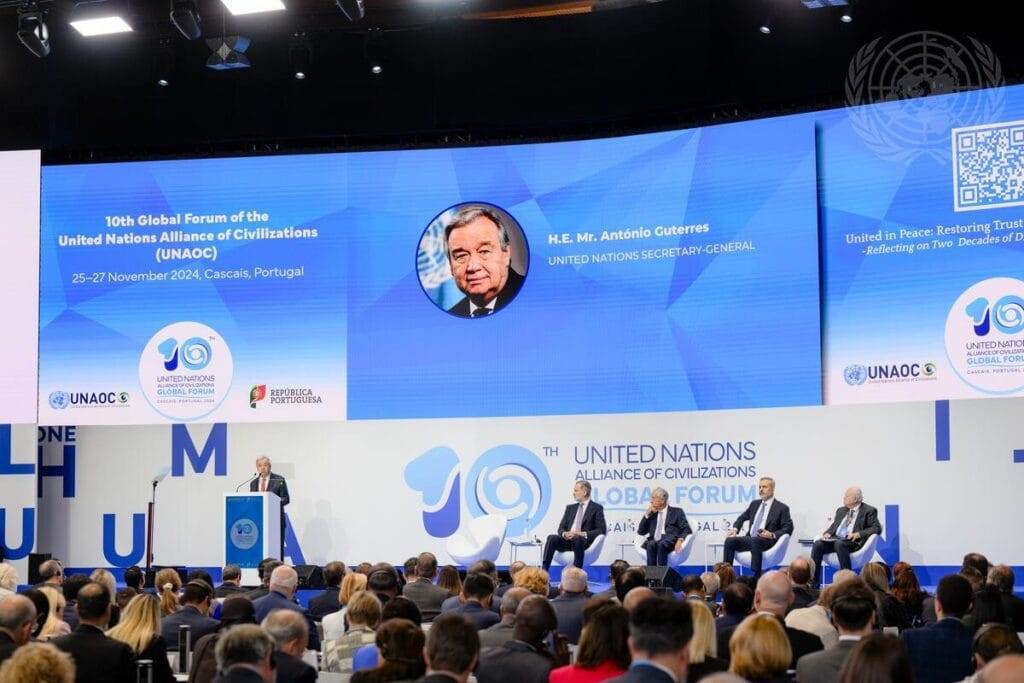
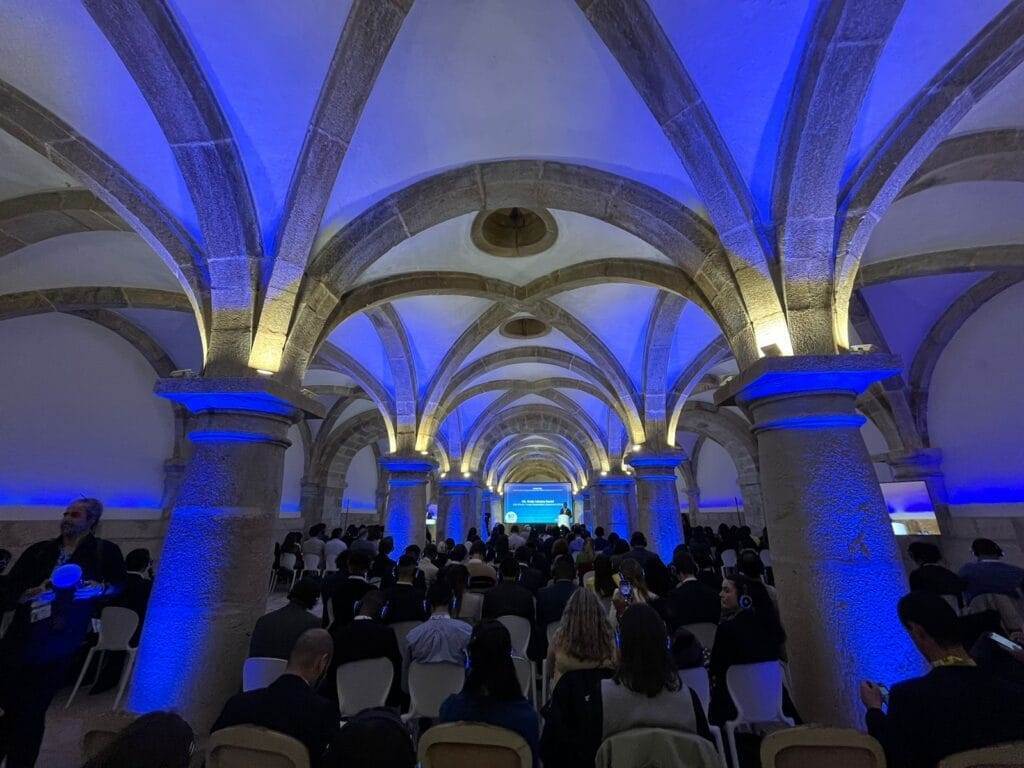
To expand the reach and effectiveness of this work, United World Ambassadors, a youth network, will play a pivotal role in connecting grassroots initiatives to international frameworks like the United Nations, ensuring that local actions resonate globally.
New Humanity remains committed to bridging grassroots initiatives with high-level organizations, advancing its mission to promote fraternity, dialogue, and sustainable development. The connections established during the UNAOC Global Forum will be instrumental in strengthening the impact of our projects and amplifying the voices of youth worldwide.
Ana Clara Giovani and Maddalena Maltese
To download the document, in English, click on the image
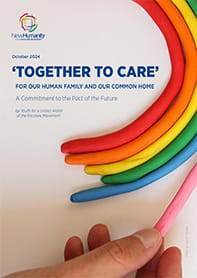
Value the positive in each person
Value the positive in each person
Be mothers and fathers to all
Be mothers and fathers to all
Be committed to your neighbours
Be committed to your neighbours
Light up hope
Light up hope
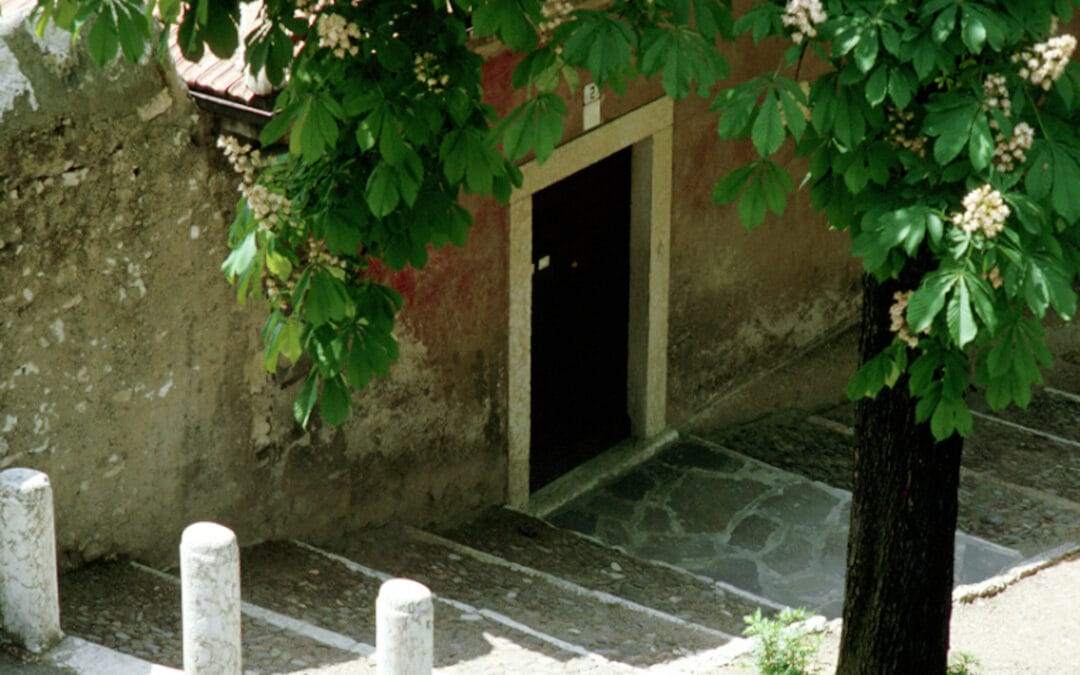
(…) Looking back today, we can understand what we can learn from December 7th, the day the Movement began decades ago. It affirms that a charism of the Holy Spirit, a new light, came down on earth during those days, a light which, in the mind of God, was destined to quench the burning thirst of this world with the water of wisdom, to warm it with divine love and thus give life to a new people nourished by the Gospel. This is what it tells us, above all.
And because God acts concretely, he immediately provided the first brick for the building that would serve his purposes, the building that is our Movement. He decided to call me, a girl like many others, and this led to my consecration to him, my “yes” to God, soon followed by the “yes” of many other young women and men.
That day speaks of light, then, and of the total gift of ourselves to God, so as to be instruments in his hands to achieve his goals.
“Light” and “giving oneself to God” are two realities that were extremely useful at that time when there was general confusion, reciprocal hatred, war. It was a time of darkness, when God seemed to be absent from the world, absent with his love, his peace, his joy, his guidance. It was a time when no one seemed interested in him.
“Light” and “giving oneself to God” are two realities that heaven wants to repeat to us today, too, when many wars continue to rage on our planet. (…)
“Light” means the Word, the Gospel, which is still too little known and, above all, too little lived. (…)
Chiara Lubich
(Conversazioni, Città Nuova, Roma 2019, p. 665)
Foto: © Archivio CSC Audiovisivi
Discover the hidden good
Discover the hidden good
Together we are strong
Together we are strong
Be close to others
Be close to others
Trust in God
Trust in God
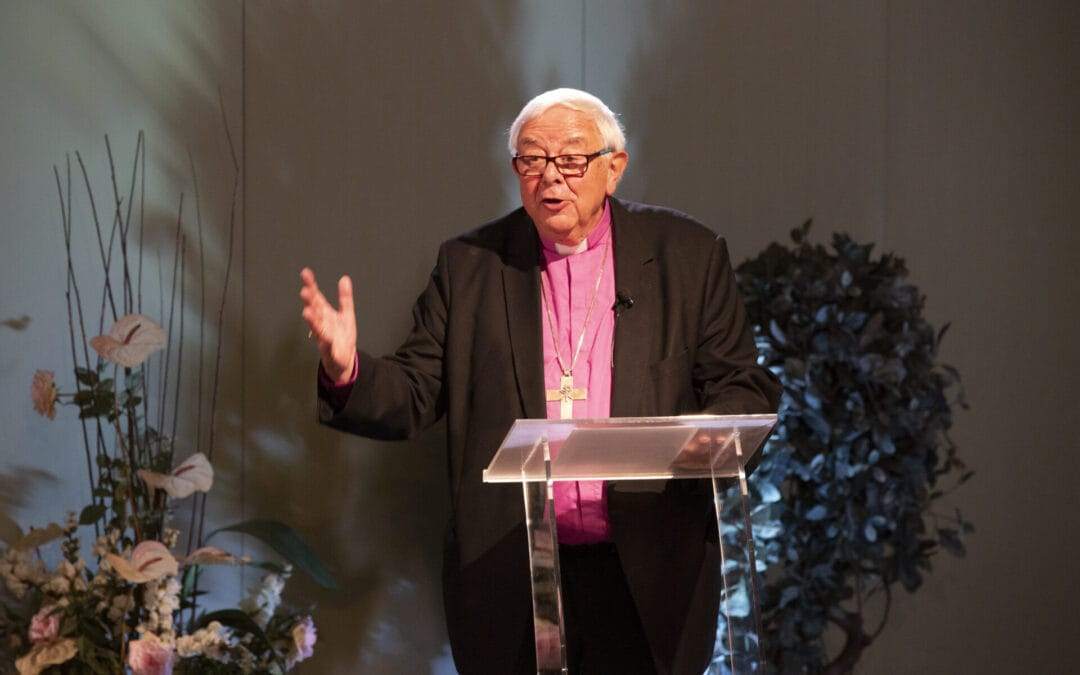
The news of Bishop Christian Krause’s death reached me just as I was beginning a Zoom conference call with Bishops from various churches who are friends of the Focolare Movement, with whom he has been a faithful traveling companion for many years. We knew his health had been deteriorating and we had been praying for him, so it was spontaneous to recite the ‘Our Father’ together, thanking God for his prophetic and encouraging presence among us. He was a man with a big heart and broad horizons.
“Colourful Bishops”
There would be a lot to say about Bishop Christian. As I write, I have before me a photograph of Cardinal Vlk of Prague (Czech Republic), Cardinal Kriengsak of Bangkok (Thailand), Dr. Mor Theophilose Kuriakose of the Malankara Syrian Orthodox Church (India), myself (a Catholic) and Bishop Christian walking towards the city centre of Lund (Sweden), dressed in our ecclesiastical robes, heading for a ceremony at the Cathedral to mark the 500th anniversary of the Protestant Reformation. This ecumenical event, hosted by the Lutheran World Federation (LWF) and attended by Pope Francis, was the first time that Catholics and Lutherans commemorated the Reformation together on a global level.
The photo reminds me of the fondness with which Bishop Christian called the Bishops of various Churches associated with the Focolare Movement “colourful bishops”. He was deeply passionate about the experience of unity in variety and diversity, inspired by a charism and by a spirituality of unity and supported by the Focolare, a predominantly lay movement. Our colourful vestments symbolized the deeper richness of the gifts exchanged during the dialogue of life undertaken by Bishops from various churches since 1982—a dialogue initiated by Bishop Klaus Hemmerle and Chiara Lubich, with the blessing of Pope John Paul II.
An Historic Day
Although Bishop Christian became acquainted with the Focolare in the 1980s through Bishop Hemmerle, his meeting with Chiara Lubich on 31st October, 1999 was a special moment for him. It took place in the context of what was undoubtedly a key moment in his life: the signing, on behalf of the LWF, of the Joint Declaration on the Doctrine of Justification with the Roman Catholic Church, on 31st October 1999 in Augsburg, Germany. Over the years, Bishop Krause has often shared with us the significance of that event, emphasizing its importance as a document signed on the brink of the 21st century. He often recalled how, on that very occasion, a group of founders and leaders of Evangelical and Catholic Movements and Communities gathered in the Focolare little town of Ottmaring to launch the ‘Together for Europe’ project. That day’s meeting with Chiara Lubich opened a path for him into an ecumenical experience whose prophetic possibilities and implications he perhaps understood more deeply than many of us.
Broad Horizons
When I became a bishop in 2013, I came into much closer contact with Bishop Christian within the framework of the Bishops of various churches who are friends of the Focolare Movement. After Lund, several of us met for monthly online teleconferences. Meeting with Christian was always a great way to broaden your horizons, because he liked to see things in the bigger picture. His sense of humour was evident in the sparkle in his eyes and his kind smile.
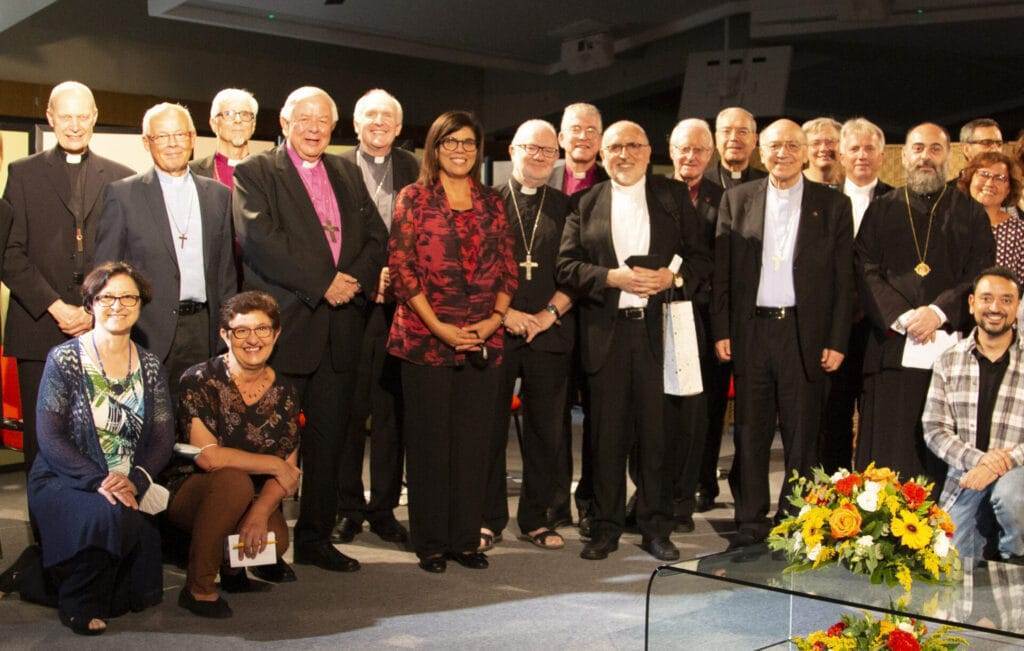
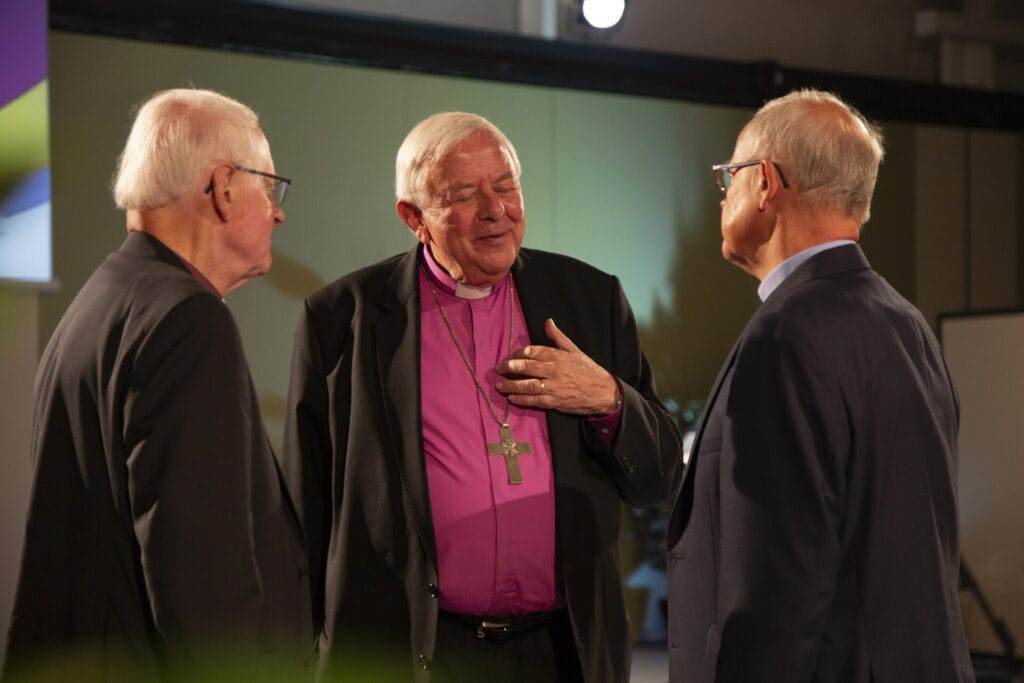
Bishop Christian Krause was passionate about the Church, about the unity of the Church and the need to move forward. For him, life was not about standing still. If we want to improve the future, we must be ready to disrupt the present! In the case of the Bishop Friends of the Focolare, Bishop Christian urged us to widen the circle and to commit ourselves to promoting circles of living dialogue with the Bishops of various Churches in the Global South. He was so pleased that in September 2021, in the midst of Covid, we were able to organize an online meeting for 180 bishops from 70 Churches from all over the world. It was a wonderful three-day meeting.
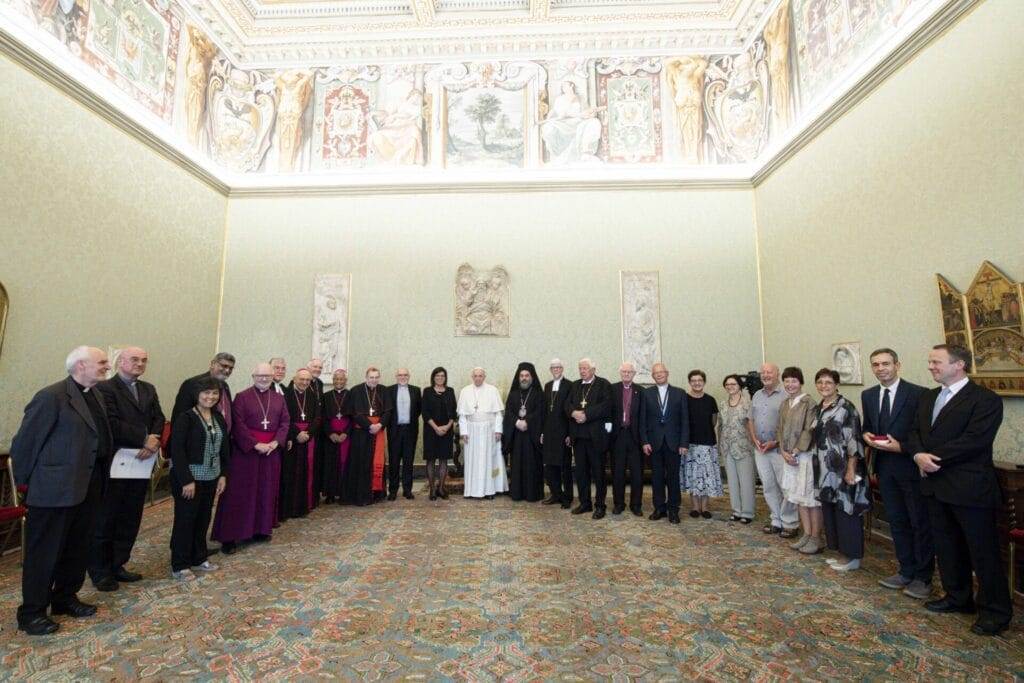
Glimpses of Hope
I recently visited Bishop Christian in the nursing home where he had moved in the last weeks of his life. Our conversation was one I will remember for a long time. He spoke to me of his gratitude for having encountered the charism of the Focolare, of the support and friendship he had experienced. Raised in the tradition of “awakening” (pietistic), his encounter with the Movement was in line with his personal conviction of the need for piety, for spirituality.
He did not hide the pain he felt at times, seeing how the world seems to have lost the visionary dynamic of hope from the 1960s, when global mission and the horizons of peace seemed within reach. Equally painful for him was the fact that it was still not possible to receive communion in the Catholic Church.
He told me about an event in the ‘90s when Chiara Lubich was not well. During a meeting, Cardinal Miloslav Vlk invited him to come with him and make a short phone call to Chiara. It was to be a short phone call and so to keep it that way, Bishop Christian simply asked Chiara: “Do you have a word for us?” Chiara did not hesitate to answer: “Always Go Forward!” Christian was very impressed.
“Always Go Forward” was the stimulus that Bishop Christian always brought us. Speaking to me about his preparation for death, he showed his strong faith with which he knew how to look to the future, including death, with hope. He shared with me the prayer taken from a famous poem by Dietrich Bonhoeffer that inspired him in that last period: “By gracious powers so wonderfully sheltered, And confidently waiting, come what may, We know that God is with us night and morning,
And never fails to greet us each new day”.
Bishop Brendan Leahy
Bishop of Limerick, Ireland
Bishop emeritus Christian Krause was born on 6th January 1940 in Dallgow-Döberitz, Brandenburg (Germany). He studied theology in Germany (Marburg, Heidelberg and Göttingen) and in the United States (Chicago). He was ordained a Pastor of the Evangelical Lutheran Church of Hanover in 1969. He worked as an assistant at the then Department of Theology of the Lutheran World Federation in Geneva (Switzerland) from 1969 to 1970 and at the headquarters of the Christian Service for Refugees of Tanganyika in Dar es Salaam, Tanzania, from 1970 to 1972. From 1972 to 1985 he was responsible for international ecumenical affairs, serving as Executive Secretary (Oberkirchenrat) to the United Evangelical Lutheran Church of Germany and the German National Committee of the LWF in Hanover, Germany. From 1985 to 1994 he was General Secretary of the German Evangelical Kirchentag (Lay Movement of the Protestant Church). He was Bishop of the Evangelical Lutheran Church of Brunswick, Germany, from 1994 to 2002. From 1997 to 2003 he was President of the Lutheran World Federation (LWF).
He died on 28th November in Wolfenbüttel, Germany, at the age of 84. Bishop Christian leaves behind his wife Gertrud Krause and four children.
Photo: © Caris Mendez – CSC audiovisivi e Vatican Media – Meeting of Bishops of various Churches (September 2021)
We are not alone
We are not alone
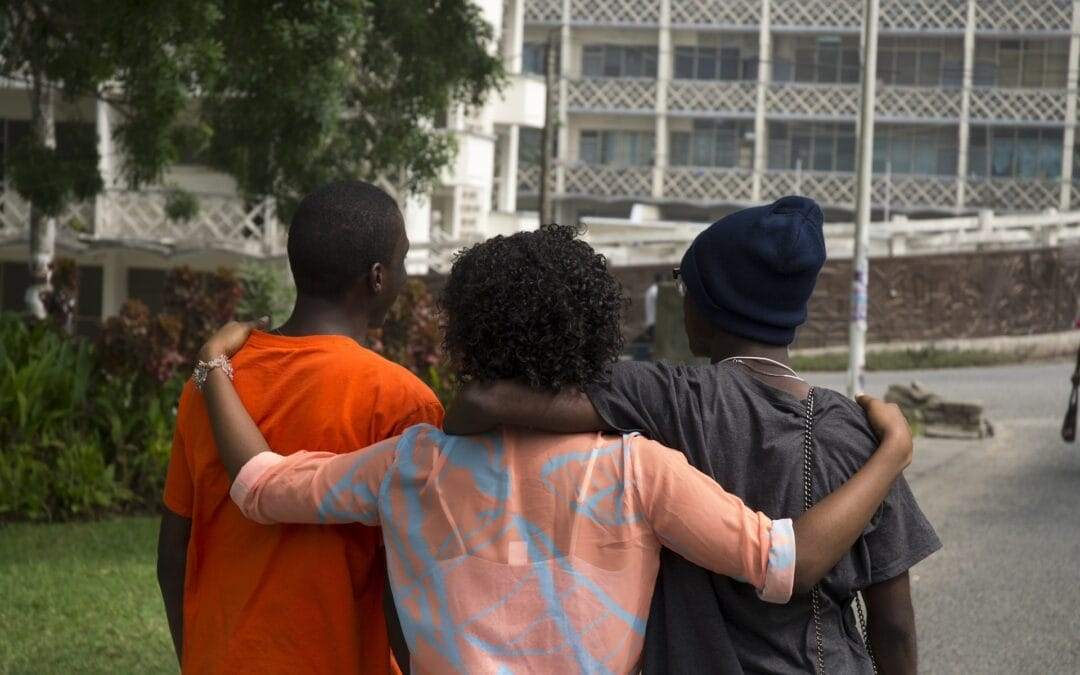
This sentence is taken from the story of the Annunciation. The angel Gabriel appears to Mary of Nazareth and makes known God’s plans for her: she will conceive and give birth to a son, Jesus, who ‘will be great and will be called the Son of the Most High.’ [1] The episode is in continuity with other events in the Old Testament whereby barren or very old women gave birth to children who were to play an important role in salvation history. Here, Mary, while wishing to fully and freely adhere to the call to become the mother of the Messiah, wonders how this will happen because she is a virgin. Gabriel assures her that it will not come about through the work of man: ‘The Holy Spirit will come upon you and the power of the Most High will overshadow you.’ [2] And he adds: ‘For nothing will be impossible with God.’ [3]
Such reassurance, which means that no declaration or promise made by God will remain unfulfilled – because nothing is impossible to him – can also be expressed in this way: nothing is impossible with God. In fact, the nuance of the Greek text ‘with, or near, or together with God’ highlights his closeness to men and women. In fact, when human beings are together with God and freely adhere to him, nothing is impossible.
«For nothing will be impossible with God».
How can we put this word of life into practice? We can do so by being confident in the belief that God can act even within and beyond our limitations and weaknesses and during the darkest periods of our lives.
This was the experience of Dietrich Bonhoeffer. Whilst in prison before being tortured, he wrote: ‘We must immerse ourselves again and again in the living, speaking, acting, suffering and dying of Jesus in order to recognise what God promises and fulfils. It is certain […] that for us nothing impossible exists anymore, because nothing impossible exists for God; […] it is certain that we must not expect anything and yet we can ask everything; it is certain that in suffering our joy is hidden and in death our life… To all this God has said ‘yes’ and ‘amen’ in Christ. This ‘yes’ and this ‘amen’ are the solid ground on which we stand.’ [4].
«For nothing will be impossible with God».
In trying to overcome the apparent ‘impossibility’ of short-comings and in striving to reach the ‘possibility’ of a sound and consistent life, the community dimension plays a decisive role. This developed when, as a group, the disciples lived Jesus’ new commandment and allowed the power of the risen Lord to dwell within them, both collectively and individually. In 1948, Chiara Lubich wrote to a group of young members of religious communities: ‘Let’s go ahead, not relying on our own strength which is petty and weak but with the omnipotence of unity. I have seen and touched with my own hands that God among us does the impossible: he performs miracles! If we are faithful to our task […] the world will see unity and with it the fullness of the Kingdom of God.’[5]
Years ago, when I was in Africa, I often met young people who wanted to live as Christians and who told me of the many difficulties, they faced each day in trying to be faithful to the commitments of faith and the teachings of the Gospel. We would talk about this for hours and, in the end, we always came to the same conclusion: ‘It is impossible if we are alone but not if we are together.’
Jesus himself guarantees this when he promises: ‘Where two or three are gathered in my name (in my love), there am I in the midst of them.’ [6] And with him all things are possible.
Edited by Augusto Parody Reyes & the Word of Life team
Photo: ©Sammmie – Pixabay
[1]Lc 1, 32.
[2] Ibid, 35.
[3] Ibid, 37.
[4] D. Bonhoeffer, German Lutheran Pastor, protagonist in resistance against Nazism
[5] C. Lubich, “Letters of the Early Times”. viCf Mt. 18:20.
[6] Cf. Mt 18, 20.
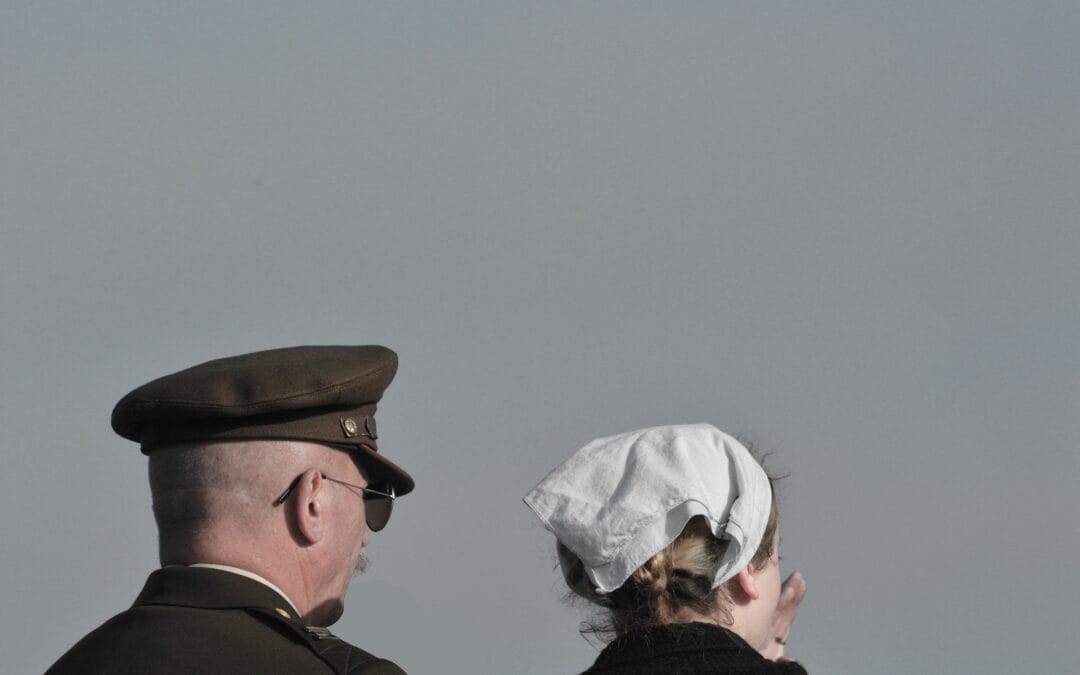
We may feel frightened when life presents us with challenging and unexpected choices but, nonetheless, it is then that our values and the desire to live with integrity clearly emerge.
It’s not always easy. When the answer to a situation requires our free and personal choice, we may feel that we are taking a difficult gamble, almost a leap in the dark, and we need the strength to go beyond our own limits.
Where can we find the strength to do this? For some people it comes from faith in the supernatural and belief in a personal God who loves us and accompanies us. For everyone it can come from the closeness of friends, of “travel companions” who support us, trust us and who we feel are near as we journey through life. They bring out the best in us and help us overcome the apparent “impossibility” of our insufficiencies to achieve the “possible” of a coherent way of life.
This happens as a consequence of relationships that are reciprocal and impacts upon us as members of a community. As Chiara Lubich said in 1948, using language typical of the time: “Let’s go ahead! Not with our strength, petty and weak as it may be, but with the omnipotence of unity. If we remain faithful to our commitment […] the world will see unity.”[1]
Going beyond our limits opens us to new opportunities and experiences that might otherwise seem out of our reach, allowing us to believe and witness that nothing we hope for is impossible.
But is it possible to believe “that everything is possible” in the face of the absurdity of Evil? This is the great question that humanity continues toask today as it has always done in the past.The absence of response unites everyone, believers and non-believers, as they search for the answeron a journey that can only be undertaken together. Because if “Evil” remains a mystery, the force of “Good” is equally powerful. There is no answer, but a way of understanding.
Edith Bruck recalled this in a recent interview.ii She was deported to Auschwitz at the age of 13 but still today, in her nineties, is a real witness of peace. When the war ended, she and her sister were faced with a dramatic dilemma. “Five Hungarian fascists who had supported the Nazis begged us to help them return home secretly and we did so by helping them on their journey. We shared bread and chocolate with them. It was one of the most intense moments I had ever experienced spiritually. I was treating someone who could have killed my father as a friend.” The decision was not easy and she argued a lot with her sister, but they did it because they thought that perhaps, this way, these people would never mistreat a Jew again. [2]
THE IDEA OF THE MONTH is currently produced by the Focolare Movement’s “Centre for Dialogue with People of Non religious Beliefs”. It is an initiative that began in 2014 in Uruguay to share with non-believing friends the values of the Word of Life, i.e. the phrase from Scripture that members of the Movement strive to put into practice in their daily lives. Currently, THE IDEA OF THE MONTH is translated into 12 languages and distributed in more than 25 countries, with adaptations of the text according to different cultural sensitivities. dialogue4unity.focolare.org
Photo: © Pixabay
[1] Chiara Lubich, “Letters of the Early Times”.
[2] Marisol Rojas Cadena SER- article on E. Bruck 26/01/2024
Know how to wait